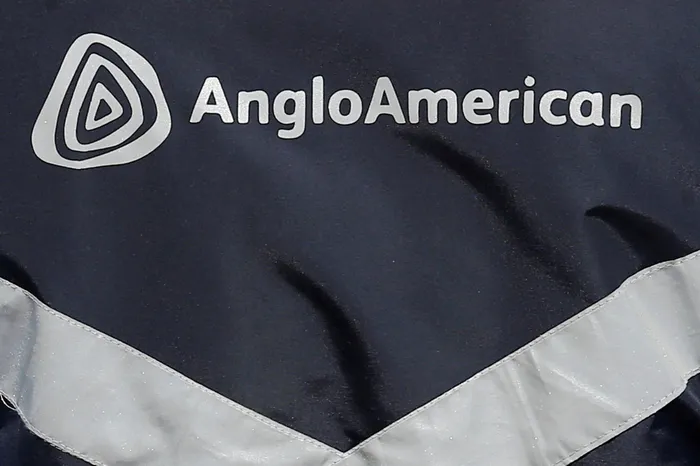Anglo American-Teck merger: a convenient Canadian exit during SA Heritage Month

nglo American is all but leaving South Africa, says the author.
Image: File
Mining has done so much to build South Africa’s economy but for too many people living in mining communities, that wealth has not translated into dignity, opportunity, or security. My mother works in mining, and our family has lived in various mining communities over the years, so I know first-hand what it means when decisions taken in boardrooms thousands of kilometres away shape the lives of ordinary people.
The timing of Anglo American’s merger with Canada’s Teck Resources tells a damning story that South African leaders appear determined to ignore. Just as CEO Duncan Wanblad’s restructuring promises collapse spectacularly with a $3.8 billion coal sale dead, the Woodsmith polyhalite project delayed until 2027, and losses ballooning to $1.9 billion, suddenly Vancouver beckons as the new headquarters. How convenient.
For most of the 20th century, Anglo American was a pillar of South Africa’s business and industrial identity. Founded in 1917 by Sir Ernest Oppenheimer, Anglo American quickly consolidated the richest gold fields and later took control of Cecil Rhodes’ diamond empire De Beers. By mid-century, it had vast holdings across mining, finance, agriculture, and industry. In fact, eight of the ten largest South African companies by 1970 belonged to Anglo, and by the end of apartheid it controlled over half of all private industry. Its influence stretched beyond business into the fabric of society, building cities, shaping labour patterns, and entrenching skewed economic power.
The company’s own story is intertwined with our national journey, and for better or worse, Anglo’s legacy is part of a dichotomy of pain and prosperity, of which the former need not ever give way to the latter, and of which makes up part of our heritage.
Yet today, Anglo American is all but leaving South Africa. The company’s latest merger with Canada’s Teck Resources, forming a combined entity “Anglo Teck,” will see the headquarters planted in Vancouver, not Johannesburg. London has been Anglo’s primary listing since it moved its base there in 1999 after 81 years in South Africa, but this new deal cements its transformation into a truly foreign entity. The Canadian prime minister even insisted Anglo shift its HQ to Canada as a condition for approving the $53 billion merger.
Anglo has pledged to retain a Johannesburg stock listing, a token tie to its roots, but what is the symbolism of a company long synonymous with South Africa’s economic heritage, to be run from continents away?
Only a year ago, after rejecting a takeover bid, Anglo promised shareholders a “streamlined portfolio, accelerated asset sales, and stronger returns.” Instead, it delivered missed deadlines, project delays, and its worst financial performance in years. The Peabody coal deal collapsed after a mine explosion. The flagship Woodsmith project suffered another $1.6 billion write-down. Dividends were slashed from $0.42 to $0.07 per share.
Now, rather than face accountability for these failures in Johannesburg where affected mining communities have borne the costs of mining for generations, Wanblad gets to relocate decision-making power to Canada and call it “transformational”.
For the worst affected mining host communities, the silence from leaders in the public and private sectors and civil society may appear borderline negligent. Where are the tough questions about why South Africa should facilitate the escape of executives who cannot deliver on basic promises? Why are they allowing a company with such poor recent performance to simply relocate its power centre overseas?
What Anglo Teck Is Selling
The merged entity, Anglo Teck, is being marketed as a “global critical minerals champion.” Executives are emphasising several headline points:
- Over 70% copper exposure, making it one of the world’s largest producers of a metal deemed essential for the energy transition.
- An additional $1.4 billion in annual average ebitda uplift projected from synergies at Chile’s Collahuasi and Quebrada Blanca copper operations between 2030 and 2049.
- A shareholding split of 62.4% Anglo investors and 37.6% Teck investors, presented as proof of balance.
- The new group headquartered in Vancouver, with London as primary listing and Johannesburg, Toronto, and New York as secondaries.
- Merger completion expected within 12–18 months, pending shareholder and regulatory approvals.
On the surface, these are designed to reassure global markets. Yet from a South African perspective, each point exposes deeper risks and contradictions.
Copper Focus, But Not for South Africa
Yes, copper demand is booming, and over 70% of Anglo Teck’s portfolio will revolve around it. But South Africa is not a copper powerhouse. Its copper deposits are modest, and no large-scale projects are on the horizon. The pivot to copper thus sidelines South Africa, redirecting capital and executive focus to Latin America and Canada.
Anglo insists this is a natural evolution toward future-facing minerals. In reality, it represents South Africa’s exclusion from the next wave of mining investment. The growth story belongs elsewhere; we are left with legacy assets.
The Mirage of $1.4 Billion in Synergies
Executives tout $1.4 billion per year in synergies at Chilean mines between 2030 and 2049. This figure, stretching two decades into the future, has become a headline justification for the deal. Yet shareholders and analysts know that projected synergies often mask present weaknesses.
The more immediate truth is that Anglo has failed to generate value from its own restructuring in the past 15 months. Failed asset sales, collapsing coal deals, and spiralling project costs leave little reason to believe management can suddenly deliver on long-term synergy promises in Chile. If Anglo cannot restructure its own house, why should South Africans trust it to build value abroad?
The Shareholding Split: 62.4 vs. 37.6
Executives describe the 62.4%/37.6% split as evidence of balance. But the numbers tell another story. South African shareholders, while technically in the majority bloc, are demoted to the sidelines once decision-making shifts to Vancouver. Influence comes not from percentage ownership alone, but from where the board sits, where strategies are debated, and where executives are held accountable. That centre of gravity is moving across the Atlantic.
The split is therefore misleading comfort: a majority stake in a company where the minority sets the agenda.
Headquarters in Canada: Capital Flight Disguised as Strategy
Moving the headquarters to Vancouver secures Canadian regulatory approval and political goodwill. But for South Africa, it cements a structural retreat. Johannesburg is reduced to a supporting office and a secondary listing. Strategic decisions on investment, procurement, and partnerships will flow through Canadian boardrooms.
This is capital flight packaged as globalisation. Once lost, headquarters rarely return. South Africa risks joining the list of countries that host mines but lack mining multinationals domiciled within their borders.
The 12–18 Month Timeline: A Vanishing Window for Scrutiny
Anglo Teck expects to close the deal in 12–18 months. That is little time for South African regulators, shareholders, and unions to demand meaningful conditions. Canada leveraged its approval process to guarantee no net job losses and critical minerals investment at home. South Africa must do the same or risk waving goodbye without securing real safeguards for jobs, investment, or community commitments.
A Pattern of Retreat
South Africa has seen this before. AngloGold Ashanti relocated to New York and London. SABMiller vanished into AB InBev. BHP Billiton left behind South32. In each case, promises of balance masked a long-term retreat. Growth, R&D, and executive oversight moved abroad. South Africa was left with diminishing influence.
The Anglo–Teck deal threatens to repeat the pattern. Except this time, the retreat comes after a period of spectacular management failure, masking underperformance with promises of future synergies.
Management Failure Disguised as Strategy
UBS and Jefferies have already downgraded Anglo, citing “low confidence in restructuring completion.” Share prices jumped on merger news, but this is a temporary reprieve. Beneath the surface are underperforming foreign assets, failed coal sales, and write-downs. The $4.5 billion special dividend promised to shareholders looks particularly cynical considering this record, an attempt to buy goodwill while long-term problems fester.
In this light, the merger looks less like a bold strategic step than a desperate distraction by overpaid, underperforming executives. Rather than fix their house, Anglo’s leadership is moving it.
South Africa’s Ministers Are Missing in Action
The most troubling aspect is government’s passivity. Where Canada extracted iron-clad commitments, South Africa appears ready to accept vague assurances. Ministers are waving through the erosion of economic sovereignty, allowing executives to relocate without answering for their failures.
This is more than corporate restructuring; it is the surrender of accountability. South Africa is enabling both capital flight and management impunity.
The Time for Tough Questions
While Anglo has promised to invest CAD$4.5 billion in new mine expansions, skills and training in Canada to become a Canadian company, there are families in North West, Limpopo, Mpumalanga, and other mining regions that are left asking what this means for our jobs, our schools, our clinics, and our future?
We are uncertain if South Africa will receive any new investment. Where is our $4.5 billion reward?
Even worse, the highly profitable Kumba Iron Ore mines will continue to see their profits shipped offshore to fund Anglo's mismanagement in their other operations.
Mining communities are tired of hearing about “value creation” while our lived reality is poverty, displacement and uncertainty.
If South Africa does not demand binding commitments on jobs, investment, and community support, it will find itself once again on the losing end of a global merger. For a country that gave birth to Anglo American more than a century ago, that would an economic setback and a profound abdication of heritage, accountability, and sovereignty.
As South Africa prepares to host the G20, how will our leaders stand before the world and call for economic justice, sustainable development, and fairer global rules? Here at home, what accountability is there for mining companies like Anglo American, one our most powerful legacy corporations, that shift its centre of gravity overseas and continue draining value from our communities?
For many of us in mining communities, the merger of Anglo and Teck feels like a familiar story of power and profit moving further away from the people, and we don’t want history to repeat itself again.

Reginald Letsholo is a youth development activist.
Image: Supplied
Reginald Letsholo is a youth development activist and works with civil society originations from various sectors in South Africa, including mining affected communities. Letsholo has aBachelor of Commerce (BCom) in Marketing and Management Science from IMM Graduate School of Marketing
*** The views expressed here do not necessarily represent those of Independent Media or IOL.
BUSINESS REPORT